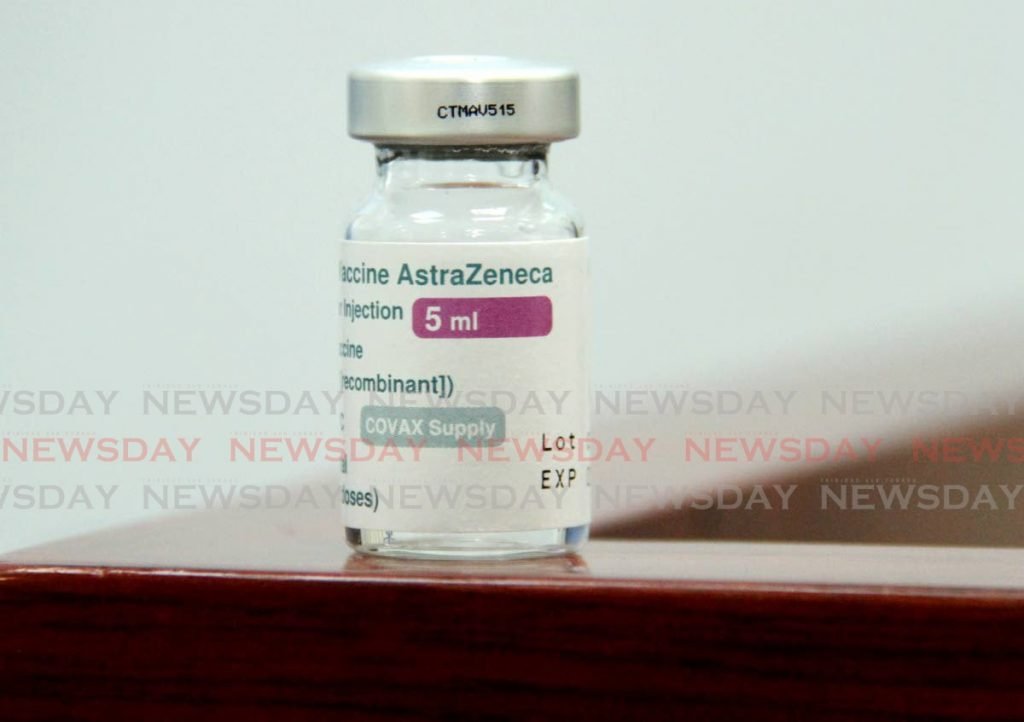Professor: AstraZeneca vaccine protects against Brazil variant

Concerns continue to be raised about the presence of the Brazilian variant of the covid19 virus in Trinidad and Tobago and whether the AstraZeneca vaccine currently in use will be effective against it.
These concerns were also heightened by the fact that the Health Ministry did not know how many cases were present in TT.
Speaking during a UWI panel, Covid19 Vaccines: Truths and Untruths, Christine Carrington, professor of molecular genetics and virology at UWI, said the Brazilian variant has a slightly different spike protein from that of the original virus. The spike protein is what the virus uses to cause infection.
“When these vaccines were developed, they were developed with the original spike protein in mind, so the immune response they elicit is perfectly matched to the original strain of the virus.
"With the variants now, you might have a slight mismatch in the response that you get, and because of that, what we are seeing is that some of the vaccines have a lower efficacy to some of the variants.”
She noted that the drop-off in efficacy – the percentage reduction in a disease in a group of people who received a vaccination in a clinical trial – is only against mild to moderate infections of the virus.
“So it’s not so good at preventing mild and moderate disease.
"But it is excellent, continues to be good, at protecting against severe disease, hospitalisation and death. The vaccines work not as well in protecting against all manifestations of infection, but they work extremely well at keeping people away from severe disease, out of hospital and from dying.”
According to the US Centers for Disease Control, a variant of concern is one for which there is evidence of an increase in transmissibility, more severe disease (eg, increased hospitalisations or deaths), significant reduction in neutralisation by antibodies generated during previous infection or vaccination, reduced effectiveness of treatments or vaccines, or diagnostic detection failures.
The CDC said studies have shown the Brazilian variant showed a significant decrease in susceptibility to monoclonal antibody treatments, and reduced neutralisation by blood serum from convalescent and post-vaccination patients. It said the transmission characteristics and mortality of the variant remains unclear.
An article in the Wall Street Journal on Thursday about the spread of the variant in Brazil said studies in that country showed the variant is up to 2.2 times more contagious and as much as 61 per cent more capable of reinfecting people than previous versions of the coronavirus
At a media conference on April 26, epidemiologist Dr Avery Hinds said positive samples were being randomly tested for the presence of the Brazilian variant. He said UWI, which is doing the genetic sequencing, could not test all samples, as it did not have the resources.
Carrington said the covid19 virus is dangerous regardless of what strain it is, so people should be concentrating on avoiding catching it altogether.
“In terms of knowing who has what variant in a country, it’s more of a public health question. It’s an important set of information from a public health level, because the interventions that you use can be impacted by the dominant type of variant you have circulating. For example in the UK, what they found when the UK variant first emerged, was that in parts of the country where that variant was present, the same public health interventions they had been using before were not working because the virus was more transmissible.
"In terms of the others which affect the vaccines, it also affects some therapies that you might use. Monoclonal antibody therapies, you’d want to know about their presence, so you can keep an eye on how well the vaccine is working, whether eventually we may have to change these vaccines to suit the dominant variants.
"From the point of knowing every single person, I don’t think that is important, I think what we need to know is what is the percentage for the different variants, what’s their prevalence basically, and how is that changing over time.”

Comments
"Professor: AstraZeneca vaccine protects against Brazil variant"